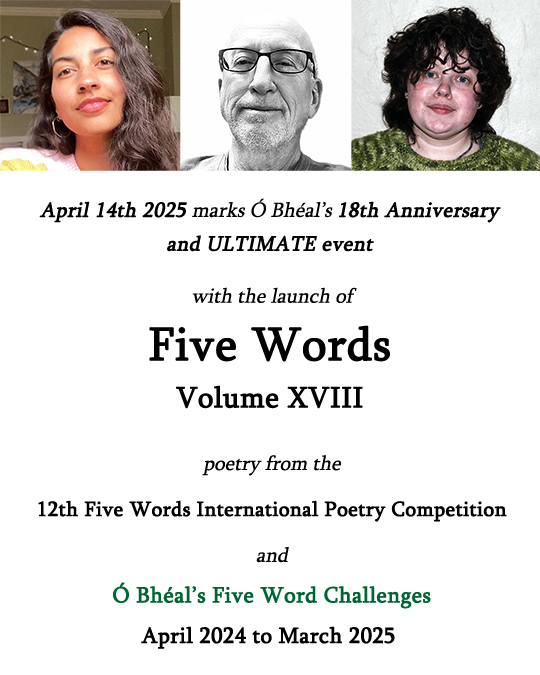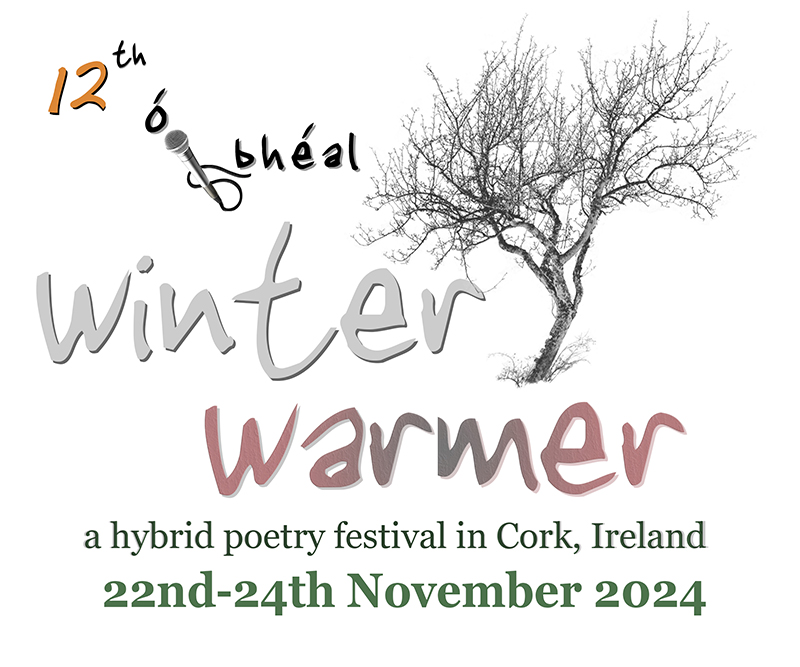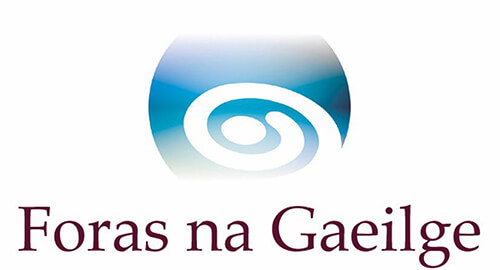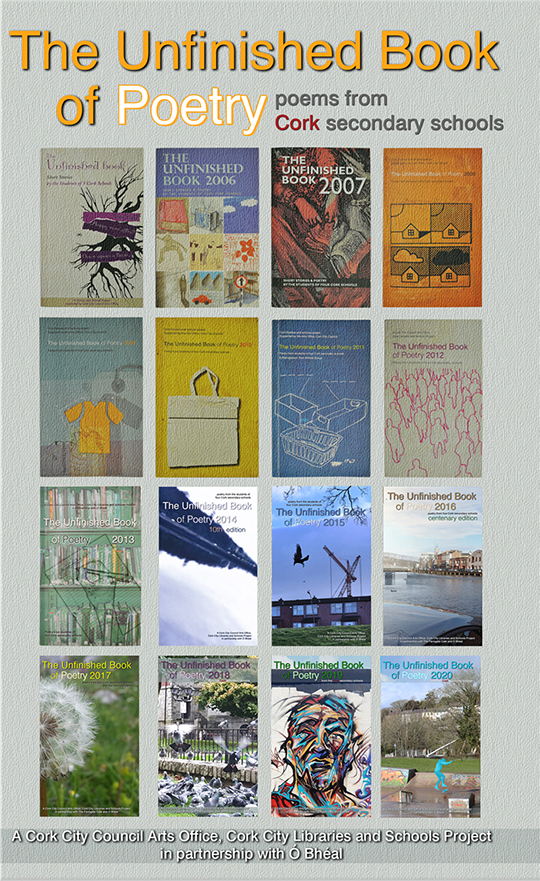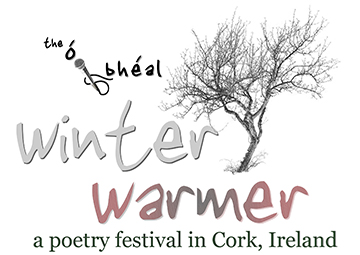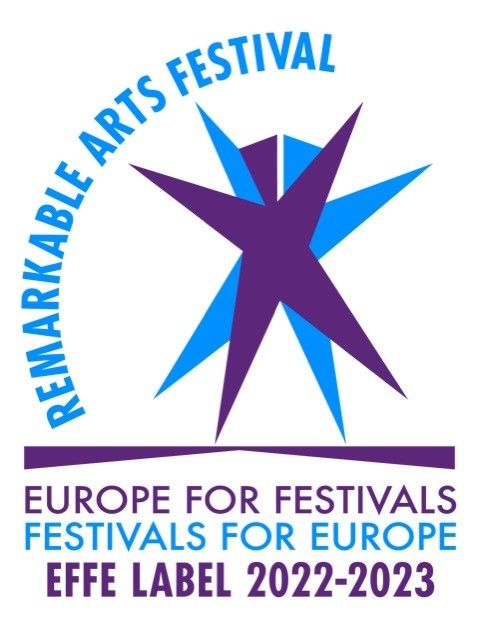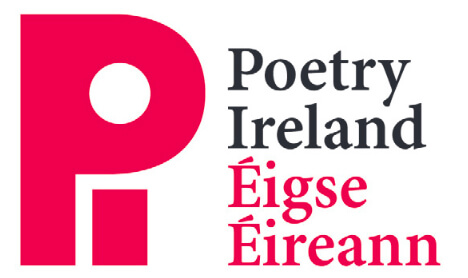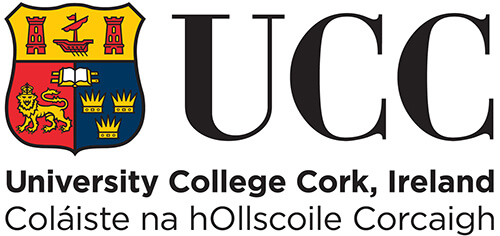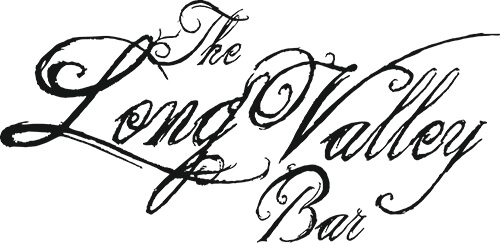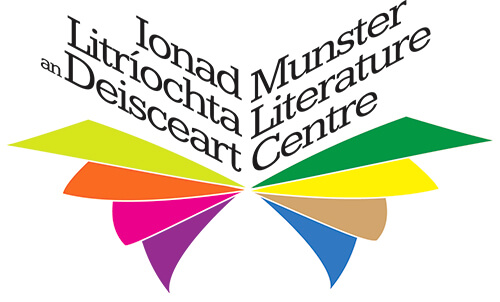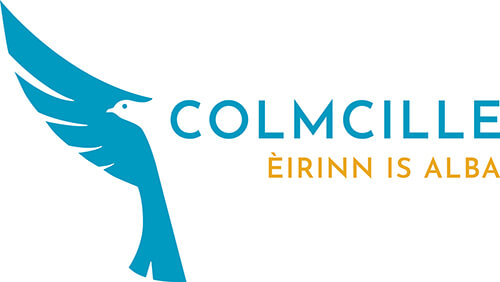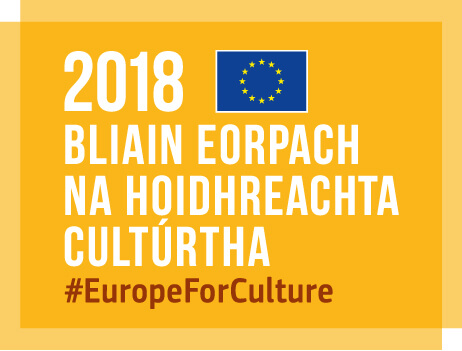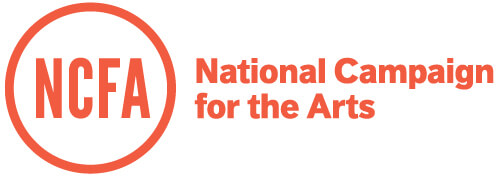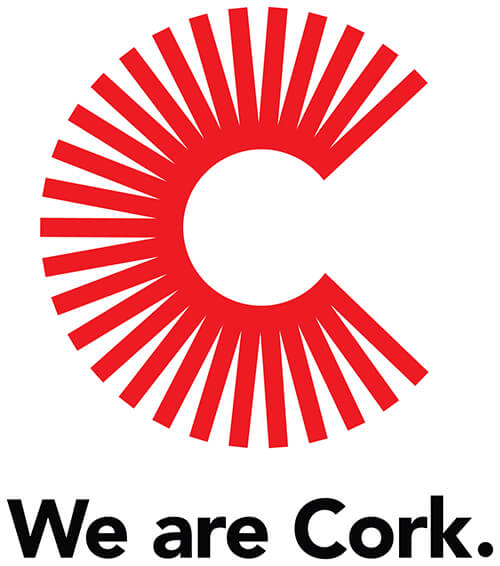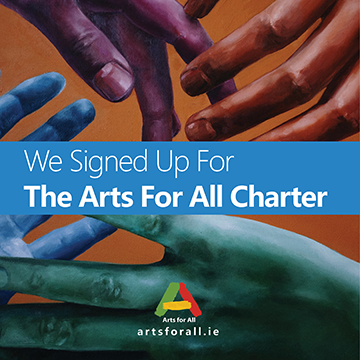 Festival of Independent Cinema
Festival of Independent CinemaThe competition shortlist of thirty films which follows, will be screened at the Triskel Arts Centre in two parts. These have been chosen from nearly one hundred submissions of poetry films completed in the last two years, hailing from Ireland, Spain, Canada, USA, UK, Latvia, the Netherlands, Portugal, Germany, Belgium, Sweden, Israel and France. The Ó Bhéal panel of judges will select one overall winner, who will receive the IndieCork festival award for best poetry film at the awards ceremony.
**Plus a feature-length Documentary: Ó Bhéal will also be screening the multi award-winning documentary from Leeds, We Are Poets, to be shown in Camden Palace on Sunday the 20th October at 5pm (see end of page).
Winner announced 2Oth Oct 2013: Congratulations goes to Manuel Vilarinho from Portugal, whose poetry-film No País Dos Sacanas (In the Land of Bastards) has won the IndieCork Festival prize for best poetry-film, in the Ó Bhéal International Poetry Film Competition.
Thursday 17th October @ 4pm – Triskel Arts Centre
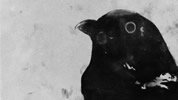
Poem: Afterlight by Timothy David Orme
Synopsis – Afterlight is a short hand made film that explores both one’s inherent darkness and one’s inherent lightness. Every frame was made with charcoal on paper (sometimes each frame was drawn up to eight times) and then composited digitally.
Director: Timothy David Orme (USA)
Timothy David Orme is a writer and filmmaker. His short films have shown at large and small festivals and art galleries all over the world. He is the author of Oponearth (BlazeVOX 2013) and Catalogue of Burnt Text (BlazeVOX 2009) as well as two chapbooks, most recently the first chapter of his novel Reflummuxology: Or, A Navel Inverse (Alice Blue Books 2012). His poetry and essays have appeared in Word For/Word, Little Red Leaves, Interim, Colorado Review and Diagram, among others. For more about Tim, visit www.timothydavidorme.com

Poem: Post Scriptum by Santiago Parres
Synopsis – Nobody understood the Prophets when talked about them. They are unshakeable witnesses of full moon and destruction, of arts and tides. They know our past glories and our present miseries. They behold us and stay hidden in the crowd… most time. They are intangible, and nevertheless the look so real.
Director: Santiago Parres (Spain)
Santiago Parres (EZO), born in Valencia – Spain, is a self taught artist, writer, photographer and filmmaker. Working with a variety of media, the graphic design led him to photography, an activity that evolved into personal footage at the beginning, and now towards more elaborate productions. He usually takes part as a photographer in short films by other directors, and his projects include the acting photography, photo shoots for companies and more recently experimental films based in own scripts.
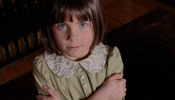
Poem: First Death in Nova Scotia by Elizabeth Bishop
Synopsis – The imaginative world of a young girl opens up as she is forced to consider what has happened to her recently deceased infant cousin Arthur. An adaptation of a poem by Elizabeth Bishop.
Director: John D. Scott (Canada)
Scott has won many awards and distinctions as an independent filmmaker and television producer. Among his most recent work is the widely reviewed multi-award winning feature-length documentary on poet John Stiles called Scouts Are Cancelled (CBC Documentary 2008-2011) and Notes on Liberty (2009) which was chosen to represent the United States’ abroad in a program entitled The American Documentary Showcase. Currently he is working on a project featuring the life and work of Elizabeth Bishop that includes adaptations of her poems. More at www.magpieproductions.com or contact at magpieproductions@gmail.com. Love to hear your thoughts.
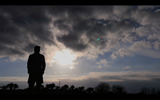
Poem: I thought I was more memorable, like the beach at midnight by James O’Leary
Synopsis – A poem about absence and the affect a person can continue to have long after they’re gone.
Director: James O’Leary (Ireland)
James O’Leary recently adapted two of his poems into short voiceover-based films. The filmpoem Afraid of what I would write was screened at the Cork Underground Short Film Festival 2013 and the Filmpoem Festival 2013 in Dunbar, Scotland. The filmpoem I thought I was more memorable, like the beach at midnight was also screened at the Cork Underground Short Film Festival 2013, and is an official selection of the upcoming 2013 Visible Verse Festival at the Cinematheque in Vancouver, BC, Canada.

Poem: Are Superheroes Buried With Children? by Padraig O Meiscill
Synopsis – The film is intended to highlight and interrogate the poem’s use of the imagery of childhood recreation to describe the slaughter of children in a warzone – in this instance the Gaza Strip, Palestine. If the poem uses the commercial bric a brac of a commercialised western childhood to question the less than equal status of childhood in the global south – and most importantly the death of childhood – the film poses an equally pertinent question. If the populations of western Europe and north America are routinely denied access to the visual imagery of childhood death caused as a result of western manufactured missiles, what is their response to the material most closely associated with their own children meeting a violent and brutal demise?
Director: Gerard Black (Ireland)
Gerard Black is a film producer with the Creative Workers’ Cooperative, Belfast. His projects have included working with teenagers from socially and economically deprived areas in producing and narrating documentaries about their communities.
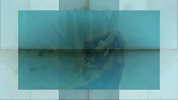
Warning: Film contains strobing effects.
Poem: Ve Znaku by Jaromír Typlt
Synopsis – Being stuck inside a life of words…
Director: Marc Neys (aka Swoon) (Belgium)
Swoon (a.k.a. Marc Neys, *1968) is a videopoem addict and has more than 120 collaborations to his name with, amongst others, David Tomaloff, Johan de Boose, Howie Good, Paul Perry and Jan Lauwereyns. His videos were selected for international festivals everywhere. In 2013 his film Drift won first prize at ‘La Parola Immaginata 2013’.
www.swoon-bildos.be / http://soundcloud.com/swoon_aka_marc_neys
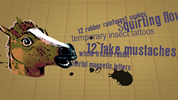
Poem: Journey up the Amazon by Martha McCollough
Synopsis – Journey Up the Amazon is about death and shopping. It conflates the idea of a strenuous physical journey with exploration of some of the more obscure corners of the amazon.com website, and is a meditation on transient experience vs. consumption, buying vs. making, and the disappointingness of things in general.
Director: Martha McCollough (USA)
Martha McCollough is an artist, writer, and videographer who lives and works in Chelsea, Massachusetts. Her work has appeared in the online magazines GoneLawn, Rattapallax, and TriQuarterly. It has been presented at festivals in Canada, Greece, the UK, and the USA.
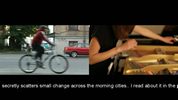
Poem: Tallinas street by Artūrs Punte
Synopsis – This is a video-documentation of live performance: the street noises in the real time are being transformed into music (every phenomena, such as cars, passers-by, cats, or bicyclists, right after being named, are getting turned into piano sounds). This sound-performance is applied as a soundtrack to the poem “Tallinas street”. Both the performance and the poem are dedicated to a certain street in Rīga – Tallinas street, where the video was also shot.
Director: Artūrs Punte (Latvia)
Artūrs Punte is a poet and multimedia artist; co-founder of Orbita – a creative collective of Latvia-based Russian poets and artists whose works are dedicated to dialogue between various creative genres (music, video, etc.) and cultures. Punte was born in 1977 in Riga (Latvia). He was graduated from the Maxim Gorky Literature Institute in 2004. Punte writes poems in Russian and Latvian, and also creates audio-visual works, such as various soundscapes, poetry videos and audio-visual installations.

Poem: El hombre hueco by Ángel Guinda
Synopsis – The work explores the emptiness of modern man in a form of social and philosophical criticism, proposing the need to purification or annihilation of this human type.
Director: Sándor M. Salas (Spain)
Sándor M. Salas (Seville, Spain, 1983) studied at the Andalucian School of Cinematography in Seville (Spain), specializing in editing and digital postproduction. From a young age, he explored the audiovisual world in an autodidact way, trying out different disciplines such as video art, film or music video; in these early works, which he confronted by himself, Sándor was in charge of the whole process, taking care of everything from writing the screenplay, to directing and editing the piece. In 2007, he formed Anandor Productions, an independent video production company based in Seville, with his life partner Anacinta Alonso. Through this platform, they produce the work of other artists as well as their own, maintaining the initial spirit of taking full responsibility for the entire process.
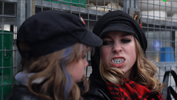
Poem: FM-Biography by Agnieszka Wolny-Hamkało
Synopsis – FM-Biography is a poetry film inspired and based on the poem by Agnieszka Wolny-Hamkało. It was shot in Warsaw/Poland and after completing the editing proposed to different musicians, to create an individual version, according to how they imagined the sound. There are different sound versions of this film. the concept behind that is to put an emphasis on the transformation process poem -> silent film -> film with music.
Director: Matthias Fritsch (Germany)
Matthias Fritsch lives and works in Berlin and Athens. He studied Media Art at the University of Arts and Design Karlsruhe (HfG) in Germany and Film, Fine Art and Curating at Bard College, Center for Curatorial Studies (CCS), New York State, USA. He has made several short and long movies, and media-based installations. Since 2010 Fritsch is the artistic director of the annual Moving Silence Festival in Athens and organizes other international events within this platform for contemporary silent film. Moving Silence was founded in 2009 by Marco Brosolo and Matthias Fritsch.
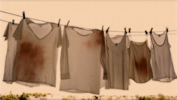
Poem: Your Memory Is My Freedom by Marie Silkeberg
Synopsis – The film moves between the streets of Stockholm and streets in Syria. Images from the development of revolution to violence in Syria erupt into the peaceful streets of a northern European city. At great speed, as if haunted, the camera moves, the voice reads. The words hovering between past and present, man and woman, west and east questioning memory, the present, the potentialities and abyss in dialogue; calls for action.
Directors: Ghayath Almadhoun and Marie Silkeberg (Sweden)
Ghayath Almadhoun is a Palestinian poet, born 1979 in Damascus, Syria. Since 2008 he has been living in Stockholm, Sweden. He studied Arabic literary studies at Damascus University. He has worked as a journalist since 1999, with cultural articles, book and theater reviews for various Arabic-language magazines and newspapers such as Al-Hayat and Al-Quds al-Arabi (London) and Annahar (Beirut). He founded in 2006, together with the Syrian poet Lukman Derky, The House of Poetry in Damascus, where several international poets appeared together with Syrian poets.
Marie Silkeberg was born in 1961 in Denmark and now lives in Stockholm, Sweden. She is a poet, translator, and professor in Literary Composition at the University of Gothenburg, Sweden. Her books of poetry include Sockenplan, säger hon (Alberg Bonniers förlag, 2003), 23:23 (Alberg Bonniers förlag, 2006) and Material (Albert Bonniers förlag, 2010). She has translated numerous writers from English, French and Danish, including Marguerite Duras, Inger Christensen, Susan Howe, Rosmarie Waldrop and Patti Smith. She has been working with sound/text compositions and videofilms with various composers and filmmakers. Her poetry films (together with Ghayath Almadhoun) include Ödeläggelse IV Stockholm – Gaza (2009) The City (2012) and Your Memory is My Freedom (2012).
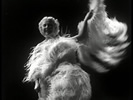
Poem: Lulu Gay by Wallace Stevens
Synopsis – A mash-up of imagery taken from the public domain. According to my personal interpretation of this abstract, modernist work, the seductive heroine retains her poise and dignity in the face of the ignobility of others.
Director: Othniel Smith (UK)
Othniel Smith is a writer whose work has included several plays and short stories for BBC Radio, eight episodes of the CBBC series The Story Of Tracy Beaker, and the Kindle exclusive novellas Sons Of Nervous Lovers and The True Srory Of My Alien Abductions: By Adrian Longton.
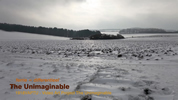
Poem: The Unimaginable by Jimmy ThePeach
Synopsis – This short film tells a story about a long gone history, in an apparently untouched landscape. You need to find the unimaginable there. And then you come to the opposite, deeply sunk in snow and frozen surfaces. Almost the reality of then: “This beauty, has a thin skin. Scratch the land, and imagine, if you can, what lies buried beneath today”.
Director: ferrie = differentieel (Netherlands)
ferrie = differentieel is a pseudonym of Ferrie Maaswinkel (1947, Amsterdam). differentieel means a ‘switching mechanism’ in Dutch, but also means ‘variation’. The greater the variation, the more the brain is challenged, are his thoughts. This variation can be found in his background, first as a painter and designer, but since 2007 as a sound-designer, arranger and composer. Meanwhile he also has an impressive list of compositions to his credits. He has strong preference for collaborations with other artists from varied disciplines. music and sound according to him, gives an extra dimension to a movie, a picture, a work of art. The imagination of the visitor is thus in many ways stimulated. In short, the brain is challenged. although his music as cinematic is circumscribed, it does not make music for the masses. His music is for the curious listener. For those who are open to a different interpretations than the usual. His musical productions always make you think.

Poem: to enunciate the fertility of a pause by Shabnam Piryaei
Synopsis – We witness the devastating aftermath of war in a film that integrates original music and poetry.
Director: Shabnam Piryaei (USA)
Shabnam Piryaei published her first collection of poetry ode to fragile with Plain View Press in 2010. Her work has been published in several journals including Poets & Writers Magazine, Unsaid, The Florida Review and The Furnace Review. She has been awarded the Poets & Writers Amy Award for Poetry and the Transport of the Aim Poetry Prize, as well as grants from the Elizabeth George Foundation, the Northern Manhattan Arts Alliance, and the Barbara Deming Memorial Fund. Most recently she has been nominated for the Pushcart Prize. Her writings have been performed at the MAD Theatre Festival in the United Kingdom. Her poetry-films have been screened in festivals and art galleries internationally.
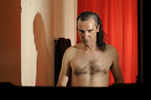
WINNER
Poem: No País Dos Sacanas by Jorge de Sena
Synopsis – To be a crook and a half in the country of crooks? No, since everyone is, at least two.
Director: Manuel Vilarinho (Portugal)
Born in 1974, Manuel is a graduate in Tecnologia da Comunicação Audiovisual by IPP, Instituto Politecnico do Porto, in 2004. He directed several video clips for the music band, Fat Freddy during 2000 and 2003. In 2001 he won the FESTIVIDEO FILM FESTIVAL and the First Prize and Public award on OVAR VIDEO FILM FESTIVAL, with the short cut, LADROES. In 2004 he won the TAKE ONE prize at the International Video Festival of Vila de Conde, with AGUENTA, RAPAZ. During 2007 and 2011 he edited several TV programs. Manuel has worked at TVI, Independent Television in Portugal, since 2001.
Friday 18th October @ 4pm – Triskel Arts Centre
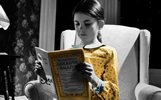
Poem: In the Waiting Room by Elizabeth Bishop
Synopsis – An adaptation of one of Elizabeth Bishop’s most loved poems, In the Waiting Room tells the story of a six-year-old girl in 1917 who suddenly realizes that she is her own person.
Director: John D. Scott (Canada)
Scott has won many awards and distinctions as an independent filmmaker and television producer. Among his most recent work is the widely reviewed multi-award winning feature-length documentary on poet John Stiles called Scouts Are Cancelled (CBC Documentary 2008-2011) and Notes on Liberty (2009) which was chosen to represent the United States’ abroad in a program entitled The American Documentary Showcase. Currently he is working on a project featuring the life and work of Elizabeth Bishop that includes adaptations of her poems. More at www.magpieproductions.com or contact at magpieproductions@gmail.com. Love to hear your thoughts.
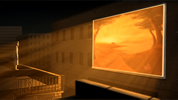
Poem: The Lake Isle of Innisfree by W.B. Yeats
Synopsis – A man in a chaotic and depressing urban environment seeks to escape his surroundings.
Director: Don Carey (Ireland)
Don Carey is a graduate of Animation at Ballyfermot College of Further Education, Dublin.
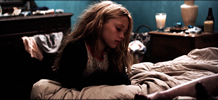
Poem: Miriam’s Song; Lullaby by Shabnam Piryaei
Synopsis – Incorporating original poetry and music, this film explores the resilience of children in circumstances of trauma and loneliness, particularly their use of imagination as a tool for endurance and escape.
Director: Shabnam Piryaei (USA)
Shabnam Piryaei published her first collection of poetry ode to fragile, with Plain View Press in 2010. Her work has been published in several journals including Poets & Writers Magazine, Unsaid, The Florida Review and The Furnace Review. She has been awarded the Poets & Writers Amy Award for Poetry and the Transport of the Aim Poetry Prize, as well as grants from the Elizabeth George Foundation, the Northern Manhattan Arts Alliance, and the Barbara Deming Memorial Fund. Most recently she has been nominated for the Pushcart Prize. Her writings have been performed at the MAD Theatre Festival in the United Kingdom. Her poetry-films have been screened in festivals and art galleries internationally.
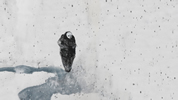
Poem: A Fora by Albert Balasch
Synopsis – A Fora (Outside) is a prose poem written by the Catalan poet Albert Balasch in 2011. It is a poem based on his novella A FORA, self-published in 1999. A few years ago, Balasch began a series of collaborations with the painter Tià Zanoguera. It was from this collaboration that the idea of adapting the original novella to comic form arose. Zanoguera then created a long series of paintings and drawings that gave birth to the project. In the end, the project did not come to fruition, but the filmmaker and editor Marc Capdevila thought about the possibility of animating the pages and paintings that had been produced. And in this way they constructed a short-film combining poetry, painting and 2D animation. Zanoguera and Capdevila took photographs of the painting and worked on them with animation software. Then Balasch reduced the text to a poem in search of the ellipsis. The result of all this process is a short-film that aims to maintain the texture of the original paintings, the expressivity of the brush strokes and the vitality of the range of colours. In short, the result is A FORA (Outside), a brief journey. A man gets out. There he finds the head of his father. Then he comes back.
Directors: Marc Capdevila, Tià Zanoguera and Albert Balasch (Catalonia)
Marc Capdevila (Barcelona, 1974) is a filmmaker and editor. He has edited documentaries and fictions. At this moment he is finishing his first documentary El pes de la palla, co-directed with Francesc Torrent. You can find the trailer at: pesdelapalla.wordpress.com. As a poet, he took part in an edition of the Poetry Week of Barcelona.
Tià Zanoguera (Palma de Mallorca, 1973) is a painter. He has exhibited his pictorial and sculptural works in several expositions, both individual and collective. As a poet, he took part in an edition of the Poetry Week of Barcelona. As a painter, he has illustrated an edition of Jospeh Conrad’s The heart of darkness (Grandes clásicos Mondadori, 2009). For Tià Zanoguera, A Fora is his second videocreation.
For the poet Albert Balasch, A Fora is his first videocreation. In 2011, with Marc Capdevila, he did the sound installation Grava, una tempesta, based on a play of his own. You can listen to it on his personal blog: schalab.wordpress.com.
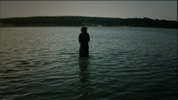
Poem: O Amor fez-me lembrar (Love has reminded me) by Alexandre Braga
Synopsis – Isabel, years after the event, discovers something that was left undone: obscure yet frighteningly present. This presence leads her to make a strange ritual: To revisit the crater lake, at the top of a small volcano, the place where everything had happened in her inescapable relationship with Joao. There, into the centre of a circular lake, she casts the last and most beautiful love letter written by him, tied to a stone, in an attempt to put an end to this feeling, this longing mixed with madness, shadow and light. An attempt to finally return herself to herself.
Director: Alexandre Braga (Portugal)
Alexandre spent his childhood in music education before going on to study communication & film studies in his home town of São Paulo | Brasil. He later settled in Lisbon – Portugal, years after his first short film and dedicated himself to advertising projects. Now with this own production company, he has decided to return to the world of motion poetry, fiction and drama.
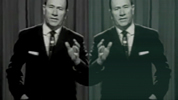
Poem: Our Bodies (a sinner’s prayer) by Matt Mullins
Synopsis – Inside this public domain footage of an Oral Robert’s sermon, Matt Mullins saw a poem in praise of rational humanism, revealing what he feels is the ultimate truth: In the end, it’s humanity that’s holy. Our bodies with their flaws and potential. So he took Roberts’ sermon apart, reconstructed it, and used Roberts’ voice to deliver an original poem in praise of the inherent divinity of our bodies. In addition, one of Matt’s goals with this piece was to create a rhythmic flow and visual collage, a kind of dance that uses the exaggerated gestures of Roberts’ preaching style as a visual counterpoint to the poem’s language. Overall, the intent of the filmpoem is to reveal new layers of meaning inside the words of others in a way that expands upon, rather than belittles or mocks the source material. It’s important to note that
Director: Matt Mullins (USA)
Matt Mullins is a writer, musician, experimental filmmaker and multimedia artist. His filmpoems have been screened at conferences and film festivals in the U.S. and abroad. His fiction and poetry have appeared in a number of print and online literary journals including Mid American Review, Pleiades, Hunger Mountain, Descant, and Hobart. His debut collection of short stories, Three Ways of the Saw, was published by Atticus Books in 2012 and was named a finalist for Foreward Magazine’s 2012 Book of the Year. Matt teaches creative writing at Ball State University where he is an Emerging Media Fellow at the Center for Media Design. You can engage his interactive/digital literary interfaces at lit-digital.com.
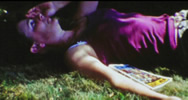
Poem: The Trouble With Dreams by Rik Sykes
Synopsis – The poem is a re-imagining of Martin Luther King’s ‘I Have a Dream’ speech and looks at the idea of fragmented, broken dreams. The poem uses contemporary news stories to garner a 21st century understanding of those momentous words, spoken 50 years ago, and asks how far have we come. The film is a mixture of new and archive super 8 footage combined with an original music score. It aims to trigger an emotional response in the viewer beyond the words and images by juxtaposing personal family portraits with contemporary headlines. It was also made as part of the ‘Architects of our Republic’ project which can be found at www.architectsofourrepublic.co.uk
Director: Antony Batchelor (England)
Batch is an independent filmmaker working in the south of England. He works predominantly in film education. This is his first independent project and his first venture into poetry film.
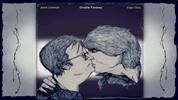
Poem: Becoming Judas by Nicelle Davis
Synopsis – Becoming Judas is a motion graphic/animation that illustrates 4 poems from the book by the same name. Poet Nicelle Davis has reinterpreted the bible, interweaving her life and establishing rock icons as biblical entities. The illustrations by Cheryl Gross add clarity to Nicelle’s poetry, allowing the audience to comprehend and recognize the significance of the work. This along with the music of Karl Preusser adds perfection to the collaboration. Individually the illustrations, music, and poetry all stand on their own. However, the combination has surpassed their traditional categories, and transcended into New Media/Video Poetry.
Director: Cheryl Gross (USA)
Born and raised in Brooklyn, New York, Cheryl Gross is an illustrator, writer, motiongraphic artist, living and working in the New York area. She is a professor at Pratt Institute and Bloomfield College where she teaches her vocation.
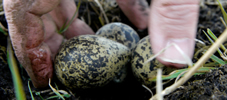
Poem: It Lêste Ljipaai by Siem de Vlas
Synopsis – In Fryslân there is a cultural-historical competition to find the first lapwing egg of the year. This visual poem captures the spirit of a tradition, which is bound for extinction. I made this film in admiration of my father. When I was a little boy he took me into the meadows to find eggs. I still remember the beauty of the landscape, the sound of the birds and the excitement when we found eggs. Sadly we never found the first egg. I also remember the cold of the wind and tired feelings in my small legs. Often asking my father to carry me on his back. The poem was specifically written for a video poem.
Director: Richard van der Laan (Netherlands)
Richard van der Laan is a dutch filmmaker of short films and experimental video art. Richard graduated in computer science and has a career as a software architect. As a child he was already intrigued by storytelling in film. Over the last years Richard invested most of his spare time in developing his skills in filmmaking.

Poem: high voltage acts of kindness by Janet Lees
Synopsis – high voltage acts of kindness is a videopoem from Lees & Rooney’s project Snatch. This is a series of digital works featuring found text from mass communications, allied with film and sound to reveal a shadow narrative – the flip side of the consumerist dream. In high voltage acts of kindness, text snatched from ads on the London Underground has been rearranged and juxtaposed with video footage. The resulting piece poses unspoken questions about the nature of the things we are promised in life. What do these ‘acts of kindness’ actually deliver? What effect do they really have on our lives? How will the seduction ultimately play out?
Director: Rooney and Janet Lees (UK)
Lees & Rooney is a collaborative partnership between poet Janet Lees and photographer/videographer Rooney. Rooney has won acclaim for his raw, thought-provoking images and distinctive short films. Janet was featured poet for September 2013 in the neo:anthology project and one of 12 poets shortlisted for the inaugural Poetry School and Pighog Press pamphlet competition this year. Having previously worked together as an advertising creative team, they are now collaborating on a range of digital projects.
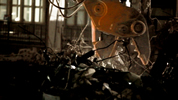
Poem: Lapiths and Centaurs (from the 12th book of the Metamorphosis) by Ovid
Synopsis – Giants and horsemen meet for a bloody wedding meal. In wild rage and lust for murder they tear and destroy everything that comes upon their faces. Inspired by Ovid’s Metamorphoses and Michael Bay’s Transformers.
Director: Frank Müller (Germany)
Frank Müller studied History, Art History and Russian in Mainz and Berlin. He also studied as a film-director at the Higher Courses for Directors and Screenplaywriters in Moscow. Since 1998 he has lived in Hamburg where he works as a freelance director, realising TV-Segments, Industrial films, Commercials and Documentaries. In 1994 his film Magia Peng Bo won best Film at the Moskow Filmfestival for Experiments, and Best Studentfilm at the Internationales Shortfilmfestifal in Luga.

Poems: The City and What Gas by Ghayath Almadhoun & Marie Silkeberg
Synopsis – The film is based on two poems by two different poets from different parts of the world, read by many voices. Repetitiously falling buildings showing the life and death of the city. A remembrance of cities destroyed. A celebration of its inhabitants.
Directors: Ghayath Almadhoun and Marie Silkeberg (Sweden)
Ghayath Almadhoun is a Palestinian poet, born 1979 in Damascus, Syria. Since 2008 he has been living in Stockholm, Sweden. He studied Arabic literary studies at Damascus University. He has worked as a journalist since 1999, with cultural articles, book and theater reviews for various Arabic-language magazines and newspapers such as Al-Hayat and Al-Quds al-Arabi (London) and Annahar (Beirut). He founded in 2006, together with the Syrian poet Lukman Derky, The House of Poetry in Damascus, where several international poets appeared together with Syrian poets.
Marie Silkeberg was born in 1961 in Denmark and now lives in Stockholm, Sweden. She is a poet, translator, and professor in Literary Composition at the University of Gothenburg, Sweden. Her books of poetry include Sockenplan, säger hon (Alberg Bonniers förlag, 2003), 23:23 (Alberg Bonniers förlag, 2006) and Material (Albert Bonniers förlag, 2010). She has translated numerous writers from English, French and Danish, including Marguerite Duras, Inger Christensen, Susan Howe, Rosmarie Waldrop and Patti Smith. She has been working with sound/text compositions and videofilms with various composers and filmmakers. Her poetry films (together with Ghayath Almadhoun) include Ödeläggelse IV Stockholm – Gaza (2009) The City (2012) and Your Memory is My Freedom (2012).
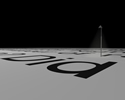
Poem: something I remember by Robert Lax
Synopsis – something I remember is a poem by Robert Lax that describes a certain moment outside of time and space during a rainy night. The letters of the poem are divided into numerous layers. These layers become spaces, streets and the falling rain, and in the end … “there is nothing particular about it to recall”.
Director: Susanne Wiegner (Germany)
Susanne Wiegner studied architecture at the Academy of fine Arts in Munich and at Pratt Institute in New York City. She works as an architect and 3D-artist in Munich, Germany. In addition to projects in real space, for several years she has been creating 3D computer animations dealing with literature and with virtual space. Venues where her work have been shown include the Pinakothek der Moderne in Munich, the Jenisch Haus in Hamburg, the Art + Technology Center EYEBEAM in New York City, festivals in Marseille, Rotterdam, Berlin, Athens, Lisbon, Copenhagen, New Delhi, Damascus, Beirut, Vienna, Tokyo, Buenos Aires, Moscow, London, Macau, Sao Paulo etc. In 2011 her film just midnight was the winner of the festival award “la parola immaginata” in Bergamo, Italy and in 2012 her film at the museum won the Ballon-Prize at crosstalk VideoArtFestival 2012, Budapest, Hungary.
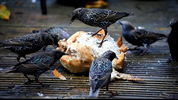
Poem: the one about the bird by Melissa Diem
Synopsis – the one about the bird explores the human attraction to horrific events through the medium of film. And the idea of the desire to stop and begin again when a situation, an experience, humanity… seems to have gone so horrendously wrong that it is beyond the point of return and can never be undone. The poem and the visuals were influenced by a black and white film (source unknown) in which children stone a wounded bird to death. I saw this clip of film at a young age and the scenes and all they implied were so startling to me that I have never forgotten the images.
Director: Melissa Diem (Ireland)
Melissa Diem has an MPhil in Creative Writing from Trinity College Dublin and was awarded a Bank of Ireland Millennium Scholarship. She has published the novel Changeling [Pan (UK) and Gill & Macmillan (Ireland)] and poetry in several journals including Poetry Ireland Review, The Stinging Fly, The Shop, The Sunday Tribune, and Rival. She was the Featured Poet in The Stinging Fly Spring issue 2010. She was shortlisted for both the Hennessy Literary Awards and the Bradshaw Cork Literary Review Poetry Manuscript Competition and joint runner up for the Patrick Kavanagh Poetry Award. Melissa has exhibited visual media throughout Ireland including at the RHA, Iontas, Guinness Hopstore and The Ark. She is currently focusing on experimental and poetry films and the one about the bird is her debut poetry film.
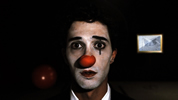
Poem: Portugal by Jorge Sousa Braga
Synopsis – A love a letter to Portugal
Director: Manuel Vilarinho (Portugal)
Born in 1974, Manuel is a graduate in Tecnologia da Comunicação Audiovisual by IPP, Instituto Politecnico do Porto, in 2004. He directed several video clips for the music band, Fat Freddy during 2000 and 2003. In 2001 he won the FESTIVIDEO FILM FESTIVAL and the First Prize and Public award on OVAR VIDEO FILM FESTIVAL, with the short cut, LADROES. In 2004 he won the TAKE ONE prize at the International Video Festival of Vila de Conde, with AGUENTA, RAPAZ. During 2007 and 2011 he edited several TV programs. Manuel has worked at TVI, Independent Television in Portugal, since 2001.
Sunday 20th October @ 5pm – Camden Palace
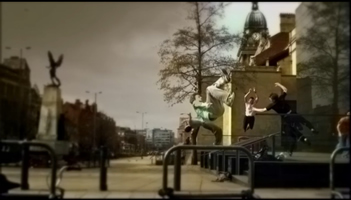
(83 min)
We Are Poets presents a moving and radical story of youth, art and freedom of expression, as a remarkable team of six British teenagers are chosen to represent the UK at Brave New Voices: the most prestigious Poetry Slam competition in the world. From their inner city lives on the red bricked backstreets of Northern England, to a stage in front of the White House in Washington DC, the young poets explosively lay bare the concerns of a generation as they take on the world and prepare for a transformational and emotional journey of a lifetime.
Directors: We Are Poets is the directorial debut of Alex Ramseyer-Bache & Daniel Lucchesi.
In 2004, whilst studying a degree in film production, Alex Ramseyer–Bache began work in education and community arts delivering film projects in some of Yorkshire’s most disadvantaged and ethnically diverse areas. As a freelance director/cameraman and as a director/editor with Access Moving Image Films, he has since worked closely with campaign groups, schools, councils, community projects and artists in the region, directing a diverse range of hard hitting films exploring social cohesion and youth culture. This collaboration with the local communities, and a desire to represent a positive and change provoking image of young people, culminated with the work he and his creative partner Daniel Lucchesi have done with the LYA poetry group and led to the now award winning WE ARE POETS.
Daniel Lucchesi began his career in his early teens making skateboarding videos for local skate shops; he has since maintained a far less demanding career in film and television. He graduated from the Leeds Northern Film School in July 2007 where he met long-term creative partner Alex Ramseyer-Bache, whom he co-directed and produced his first feature film with, the award winning ‘We Are Poets’. He now lives and works in London as a freelance PD, cameraman and editor for a number of major production companies on high-end television programmes. He also writes and directs comedy sketches for the BBC

